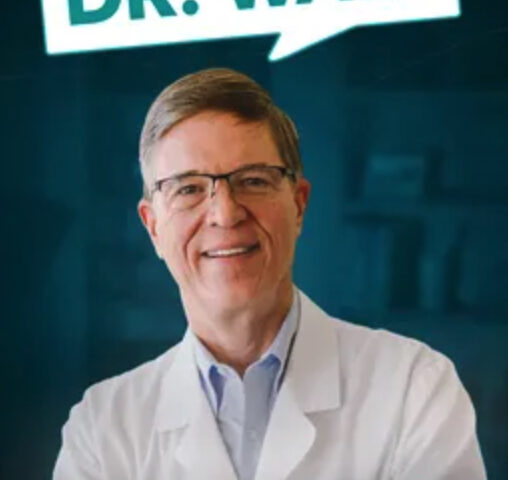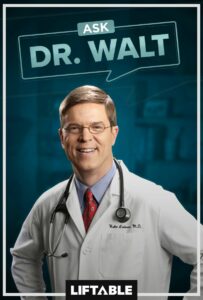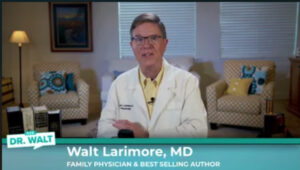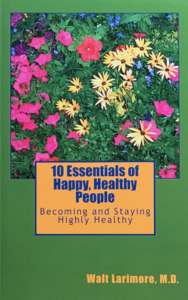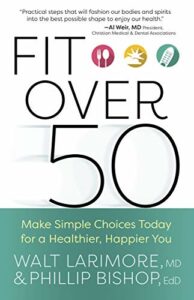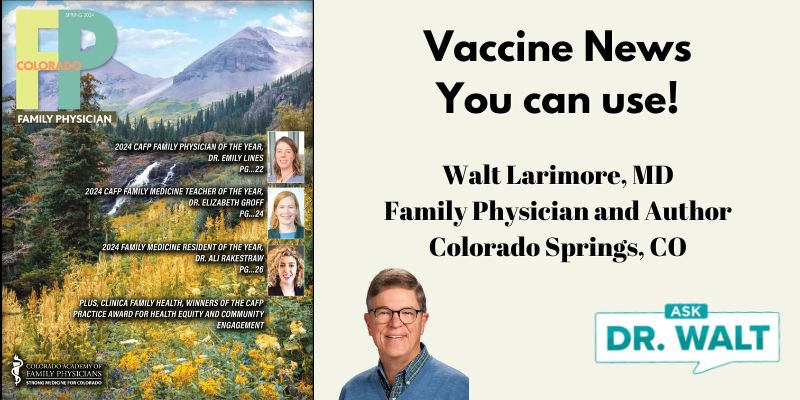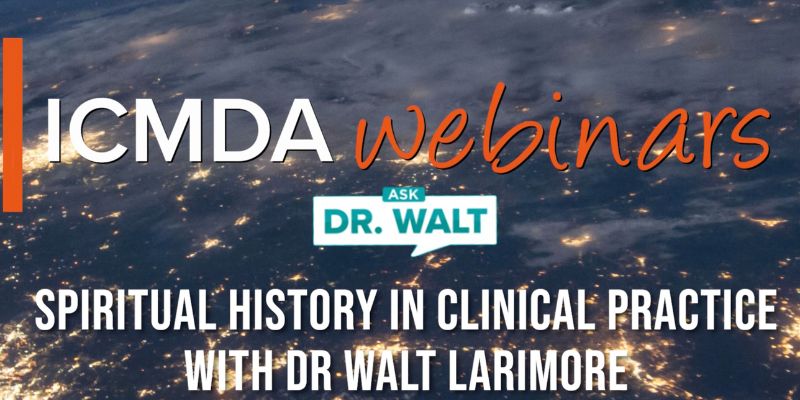Ask Dr. Walt – Episode #09 – Essential #4 – Practicing Acceptance and Letting Go OR The Essential of Forgiveness (Part 2)

The Writer’s Studio 11 – My Interview with Tara McClary Reeves (Part 1)
June 23, 2023
Dietary Supplements – The Wild West of Good, Bad, and a Whole Lot of Ugly
June 28, 2023Ask Dr. Walt – Episode #09 – Essential #4 – Practicing Acceptance and Letting Go OR The Essential of Forgiveness (Part 2)
In this series, I’m explaining the 10 key habits or 10 essentials of happy, healthy people. In this episode, we’ll discuss “HEALTH AND FORGIVENESS — PART 2” “Essential #4 — Practicing Acceptance and Letting Go OR The Essential of Forgiveness” (Part 2) You can click below to watch a video of the show, or I’ve put the show transcript at the end of the blog if you’d prefer that.
From 2021-2022, I was honored to host a TV show on LiftableTV, “Ask Dr. Walt.” Today, I’m releasing Episode #9, Practicing Acceptance and Letting Go OR The Essential of Forgiveness (Part 2).
I’ll continue my discussion from last week on how unforgiveness and holding grudges can affect your health negatively on today’s episode of Ask Dr. Walt.
You can learn more about this topic in my best-selling book, 10 Essentials of Happy, Healthy People: Becoming and staying highly healthy or Fit over 50: Make Simple Choices for a Healthier, Happier You.
CLICK HERE FOR 10 E’S CLICK HERE FOR Fo50
Disclaimer: The Ask Dr. Walt show is designed for entertainment purposes to give information on various medical conditions, treatments, and procedures for your personal knowledge and to help you be a more informed consumer of medical and health services.
SHOW TRANSCRIPT
TEASE:
Did you know that if you’re carrying a grudge or bitterness, it is actually poisoning you from the inside out? I’ll explain how and why on today’s episode of Ask Dr. Walt.
OPEN:
Hi, everyone. I’m family physician Dr. Walt Larimore and I’m delighted you are taking the time today to join me in my home office as we continue part two of our discussion about some of the health benefits of forgiveness.
I’ve often recommended that my patients who struggle with unreleased past pain use the powerful healing tool of writing—even if they don’t consider themselves to be writers. One prescription I’ve given is to have my patients write a letter to the one(s) who hurt them. I encourage my patients not to judge or censor their writing, not to hold back any emotion, and not to worry about grammar. Just let it all come out. I suggest they keep this letter private. It is not a letter to send to the person who hurt them but to use as a tool for personal healing—and then to destroy.
A former patient back in rural North Carolina, a soldier unable to let go of the pain of the Vietnam War, took me up on this advice. I still remember a phone call from him. “Doc,” he almost shouted, “you won’t believe it. It’s gone! I did it. I did it. It worked. It really worked.”
“What did you do?” I asked my patient. “Doc, I wrote the letters. I wrote Sarge and Binky. I wrote the Viet Cong. I even wrote Presidents Johnson and Nixon. I tell you; I was one angry guy. But, Doc, it’s gone. It’s gone!” He broke into sobs for what seemed like several minutes. “Doc, I’ve never been better. The pain’s gone. I feel so much better. I want to bury these guys. Will you come over and help me?”
“You bet. I’ll be right there.” When I drove up, he met me on the front porch. “Follow me,” he instructed. We walked to the edge of the backyard. He had dug a hole, and I could see the shovel and a pile of dirt in the moonlight. He pulled a roll of papers from his belt, knelt down, and gently placed them in the bottom of the hole. He struck a match, and we watched his hatred burn to ash.
“Doc, I know you’re a man of prayer. Would you say one for me—and Sarge—and Binky?” So, I prayed. Then together we filled that hole with dirt. We buried that pain. It was gone. That day he took a huge step on the path toward a higher degree of true health.
If you want to be highly healthy, you have to admit that although you may have been wronged, you’ve also been wrong to foster your anger, bitterness, shame, or regrets, and to withhold your forgiveness. Admitting you were wrong to hold on to these emotions is a form of confession.
According to the Bible, to confess is simply to agree with God that certain attitudes, emotions, or actions are wrong. We can begin to find healing when we simply agree we missed the mark, that we fell short.
The Bible teaches in 1 John 1:9, “If we confess our sins, [God] is faithful and just and will forgive us our sins and purify us from all unrighteousness.”
Ninety-four percent of Americans believe forgiveness is good, but only 48 percent admit they usually tried to forgive. Are you one of the majority who refuses to forgive—who declines to shake off chronic anger, bitterness, or cynicism?
If so, you’ve chosen to ignore the divine wisdom of The Good Book, the Bible, which teaches in Ephesians 4:31-32, “Get rid of all bitterness, rage and anger, brawling and slander, along with every form of malice. Be kind and compassionate to one another, forgiving each other, just as in Christ God forgave you.” The Bible makes it very clear that the ability to forgive is based on the fact that we have been forgiven. We are to freely give what we have been freely given because it is one of the pathways to becoming and staying highly healthy.
Dr. Pitts adds, “As many have said before, holding a grudge is like drinking poison and hoping the other person dies. A grudge offers us the chance at vindication, but it overpromises and underdelivers.” Knowing that the Creator of the universe, who designed each of us, is willing and able to completely forgive all of our past wrongs allows us to begin the process of forgiving. Again, Jesus made this clear when He taught in Mark 11:25, “If you hold anything against anyone, forgive them, so that your Father in heaven may forgive you.” He modeled this by asking God, in Luke 23:34, to forgive those who were sneering at Him and mocking Him—even His executioners.
If you need to admit your mistakes or wrongdoing to God, do so, knowing that with this admission comes forgiveness and cleansing. Afterward, thank God that He has forgiven your wrongs. You exhale (confess) the bad, and then inhale the good (the forgiveness of God). It’s a form of spiritual breathing. Without it, you die spiritually.
Then, if someone has wronged you and you’ve never forgiven them, make the choice to forgive them. Remember our definition of forgiveness: it’s the decision to let go of resentment or vengeance toward someone or something you feel has harmed you in some way.
If it’s a person, in some cases, you may even want to consider visiting or calling them to confess the anger or bitterness that has been in your heart and tell them you’ve forgiven them. They may not choose to receive the forgiveness, but if you’re giving it sincerely and with a pure heart, it will improve your health and set you free.
In His Sermon on the Mount, in Matthew 5:23-24, Jesus taught, “If you are offering your gift at the altar and there remember that your brother has something against you, leave your gift there in front of the altar. First, go and be reconciled to your brother; then come and offer your gift.” Even if the fault is with the other person, it is your responsibility to attempt to heal the relationship.
I hope you are beginning to see that unforgiveness is lethal—it destroys your physical, emotional, relational, and spiritual health. And it brands you as the king or queen of hypocrisy.
Why? On the one hand, you may be harboring resentment for a wrong done to you, but on the other hand, you may fail at asking forgiveness from others whom you have wronged. In that case, it’s your responsibility to go to them (or contact them if you can’t go in person) to admit your wrong and ask for forgiveness.
Secondly, you may be choosing not to forgive others, but at the same time, you want God to forgive you for your many wrongs. In this case, it’s your responsibility to go to God, admit your unforgiveness, and freely receive His.
When it comes to asking other people to forgive you, I encourage people to ask simple yes or no questions when seeking forgiveness. The simple question, ‘Will you forgive me?’ requires a definitive yes or no and leaves no wiggle room for later doubt, especially when the reply is, ‘Yes, I forgive you.’”
Of course, sometimes resolution or restitution is impossible due to ongoing abuse or violence. In cases like these, you can pray for the people from whom you’re estranged and then leave the rest to God. Fix whatever is wrong if you can. You can make a conscious decision to forgive, to let it go, to leave it with God, and to choose to become healthy yourself.
However, if you are at fault, apologize. Accept any consequences that may result. Make restitution. The bottom line is, that to the extent it is possible on your part, banish grudges and resentments—to let them go so you can be set free. Make the conscious choice to forgive—even knowing that you may have to practice forgiveness over and over. I tell my patients, often forgiveness is not a single event, but a process—sometimes a long-term process—but one that promises freedom and victory—that guarantees your health will improve.
As you work on forgiving those who hurt you, understand that it may be difficult to forgive and forget. Rarely can one completely forget what happened. Don’t even try. But prayerfully, over time, you’ll perhaps less often recall and brood over the injustice and hurt. It has been wisely said, “The first to apologize is the bravest, the first to forgive is the strongest, and the first to forget is the happiest.” Again, you may not be able to forget, in fact, it may be impossible for you to forget, but with true forgiveness, you can choose to remember far less painlessly. And true forgiveness and the healing that comes from it are manifested most clearly when we can bless those that hurt us instead of blasting them—when we can pray for them instead of verbally persecuting them. Maybe that’s why Paul wrote in Romans 12:14, “Bless those who persecute you; bless and do not curse.”
Forgiving is a decision—an act of your will—but restoration of trust, by contrast, is conditional and takes time. The two are not the same. It’s worth repeating one more time: Forgiving someone for something they have done against you, or to you, does not condone or sanction their behavior. It does not excuse them from their actions or even the consequences of their wrongs. It doesn’t mean you shouldn’t be cautious when interacting with this person.
I should also mention that if this complex process of forgiving feels daunting or even impossible, you may benefit from the help of a pastoral professional or a licensed counselor or therapist. Focus on the Family at 1-800-A-FAMILY or www.FocusOnTheFamily.com or a local faith community that can assist you in finding trusted counselors in your area.
Making forgiveness a habit takes practice. In my experience, the physical, emotional, relational, and spiritual healing that comes from forgiveness can only begin after someone makes the decision to forgive and follows through with that decision.
Once the healing process begins, you’ll begin to notice changes. Researchers tell us the changes forgivers experience filter into their beliefs, behaviors, and body and brain biochemistry. Even their facial expressions, posture, and body language can change. Their blood pressure and heart function are likely to improve. The bottom line is that forgiveness can heal both the person who is forgiven and the person who forgives.
Forgivers often come to realize how their pain and suffering have resulted in positive transformation as they begin to witness seedlings of growth out of the ashes of hurt and the ruins of burned-out dreams. Many even begin to feel a twinge of joy for the suffering they’ve experienced—they are able to cultivate gratitude for past pain. For the person who has a personal relationship with God and who is growing spiritually, it is indeed possible—in fact, probable—that gratitude, even for suffering, will develop.
The apostle Paul taught this principle in Colossians 2:6-7, “Just as you received Christ Jesus as Lord, continue to live in him, rooted and built up in him, strengthened in the faith as you were taught, and overflowing with thankfulness.” Truly healthy people become thankful people—full of gratitude that overflows—even in the midst of pain and suffering.
Research indicates that individuals who perform acts of kindness such as forgiveness receive a boost in life satisfaction. Another study found that even remembering a past act of kindness boosted levels of happiness in the present. Various studies conclude that random acts of kindness can improve your well-being, increase energy levels, and lower stress. In other words, kindness and forgiveness to others is actually kindness and forgiveness to yourself.
The final phase of forgiving involves using your healing to reach out to others—to comfort them in their pain. The apostle Paul found this to be true in his life. He wrote in 2 Corinthians 1:3-4, “God…comes alongside us when we go through hard times, and before you know it, he brings us alongside someone else who is going through hard times so that we can be there for that person just as God was there for us.”
To become a healthy person, you must practice acceptance and letting go. You must practice forgiving. Nothing preserves and even increases the unhealthy power of unforgiveness or past pain more than rehashing the events over and over. Perpetually lamenting and grieving over your past will not only not help you find healing, but it will also eventually cause disease that will prevent you from being healthy. It’s like watching the same horror movie again and again while praying that the way the movie ends would change. Instead, you must learn to turn off the movie, leave the theater, and move on with your life.
The inner peace that increases your odds of being a truly healthy person comes from accepting your past and then moving out with hope and confidence into your future. By beginning to accept your past as something your Creator can use to improve your future—to improve who and what you are—you can then concentrate on seeing what he is doing, and what he is accomplishing in and through your life.
You can choose to blame him, curse him, and ceaselessly ask, “Why me, God? Why did you let this happen to me?” Or you can choose to accept what he has allowed and begin to seek the answer to much more profitable questions: “God, what are you trying to teach me? What are you doing here?” These questions attest to a childlike trust in God’s goodness, wisdom, and plan. As you begin to seek the good that can result even from bad things, you can see his hand at work in all things.
Healthy people simply are not blamers—they can’t be. The more you blame yourself or resent others for your painful past, the more harm you do to your own health. Truly healthy people take responsibility for their thoughts and actions. They are willing to wrestle with their own shame, guilt, and anger—and to subdue it.
It has been said that justice is giving others what they deserve; mercy is not giving what is deserved; grace is giving what is not deserved. Truly healthy people are liberal dispensers of mercy and grace.
Forgiveness doesn’t change your past, but it does improve your future. By becoming a forgiver, your body, heart, spirit, soul, and relationships with other people and God himself will all be healthier for it. In other words, forgiveness is a gift you give to yourself.
Time’s up for today, but next time we’ll continue our look at the 10 Essentials of Healthy, Happy People. We have six more to cover, and I’d love you to vote on which one you want me to do next. Just drop me an email at AskDrWalt@LiftableTV.com and let us know your next choice. Of course, you can send in any other questions you’d like me to address. So, we’ve done the first four. Which do you want next?
WE HAVE COVERED:
- The essential of true health—understanding how physical, emotional, relational, and spiritual health work together
- The essential of self-care—how to be proactive in preventing disease
- The essential of forgiveness—how to practice acceptance and letting go
- The essential of reducing SADness—stress, anxiety, and depression—how to lighten your load
WHICH WOULD YOU LIKE ME TO DISCUSS NEXT TIME?
- The essential of relationships—avoid loneliness like the plague
- The essential of spiritual well-being—cultivate a positive spirituality
- The essential of a positive self-image—how to see yourself as your Creator sees you
- The essential of discovering your destiny—how to nurture your hopes and dreams
- The essential of personal responsibility and empowerment—how to become your own healthcare quarterback
- The essential of teamwork in healthcare—how to team up with winning healthcare professionals
Just drop me an email at AskDrWalt@LiftableTV.com and let me know your next choice and other questions you have. What concerns do you have about your or your family’s health? One warning, I cannot answer specific questions about your individual health, but I bet you have plenty of great general questions to ask me, so send them to AskDrWalt@LiftableTV.com, and we’ll get to as many as we can during future programs.
In addition, you can read more about these 10 Essentials in two books that you can find on my website, www.DrWalt.com. One is Fit over 50: Make Simple Choices for a Healthier, Happier You, and the other is 10 Essentials of Happy, Healthy People: Becoming and staying highly healthy.
Don’t forget to vote on our next program. Until our next visit, let’s get moving together toward true health, and “Dear friend, I pray that you may enjoy good health and that all may go well with you, even as your soul is getting along well.”
Disclaimer: The “Ask Dr. Walt” show is designed for entertainment purposes to give information on various medical conditions, treatments, and procedures for your personal knowledge and to help you be a more informed consumer of medical and health services.
© Copyright WLL, INC. 2023. This blog provides healthcare tips and advice that you can trust about a wide variety of general health information only and is not intended to be a substitute for professional medical advice, diagnosis, or treatment from your regular physician. If you are concerned about your health, take what you learn from this blog and meet with your personal doctor to discuss your concerns.

